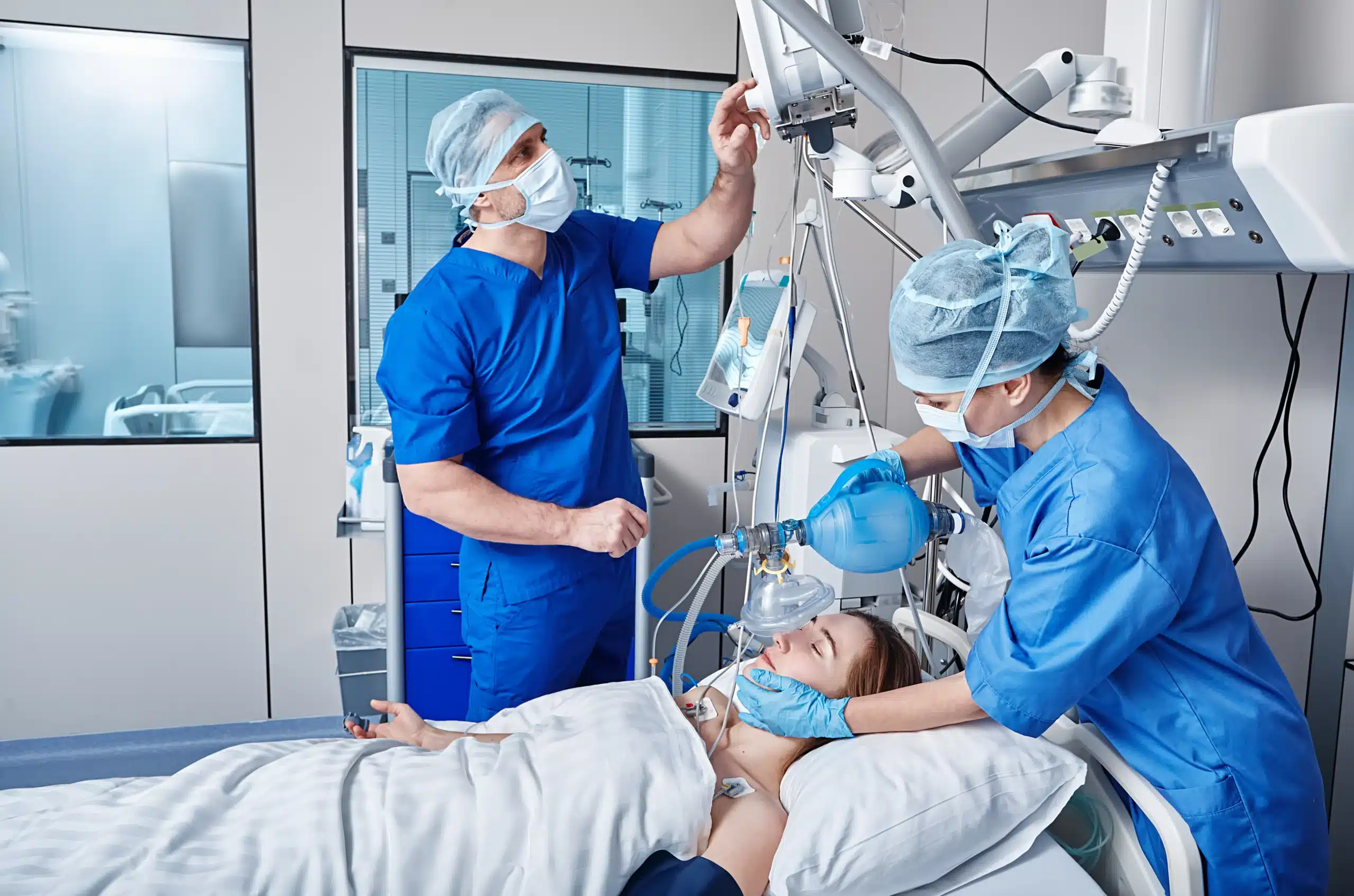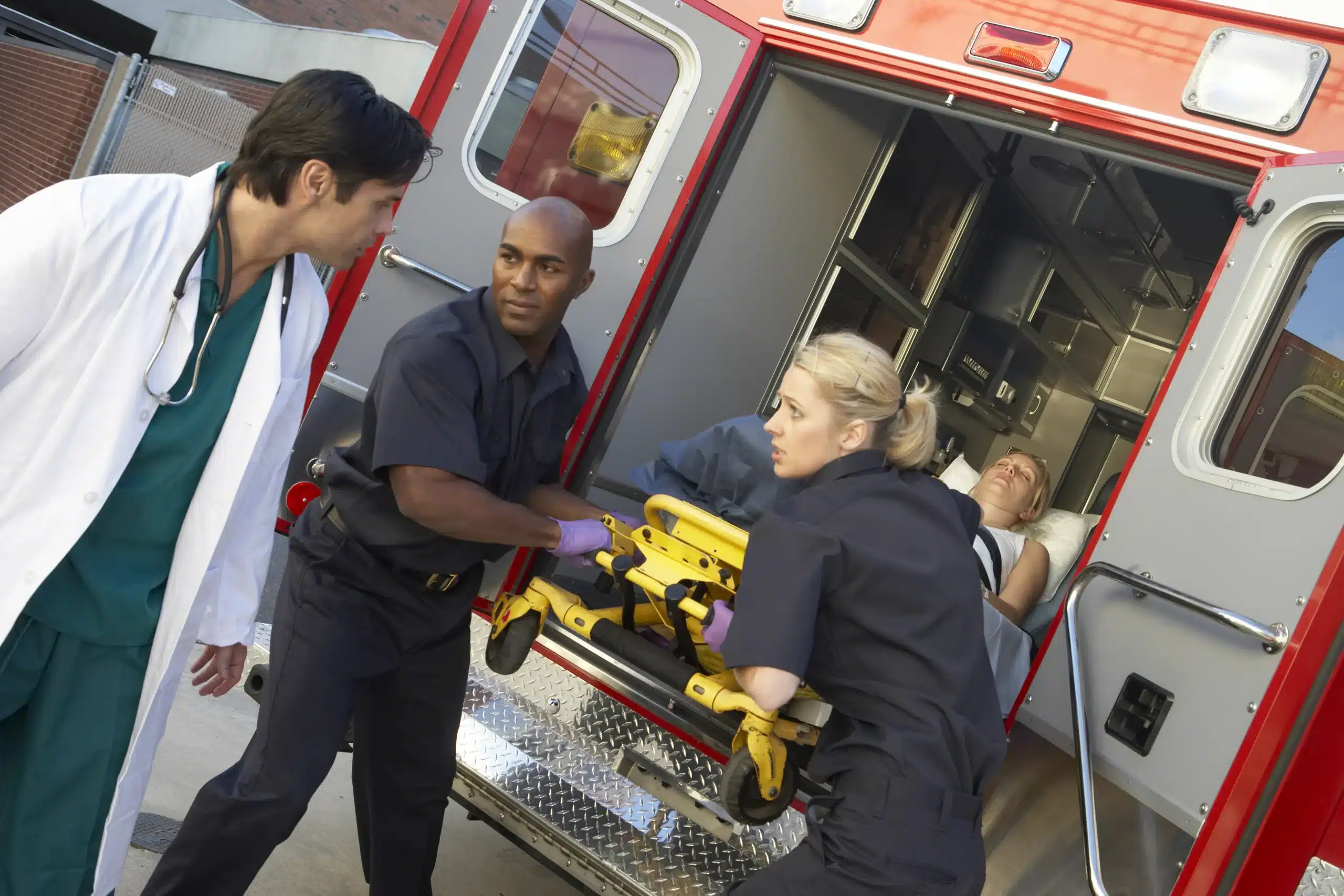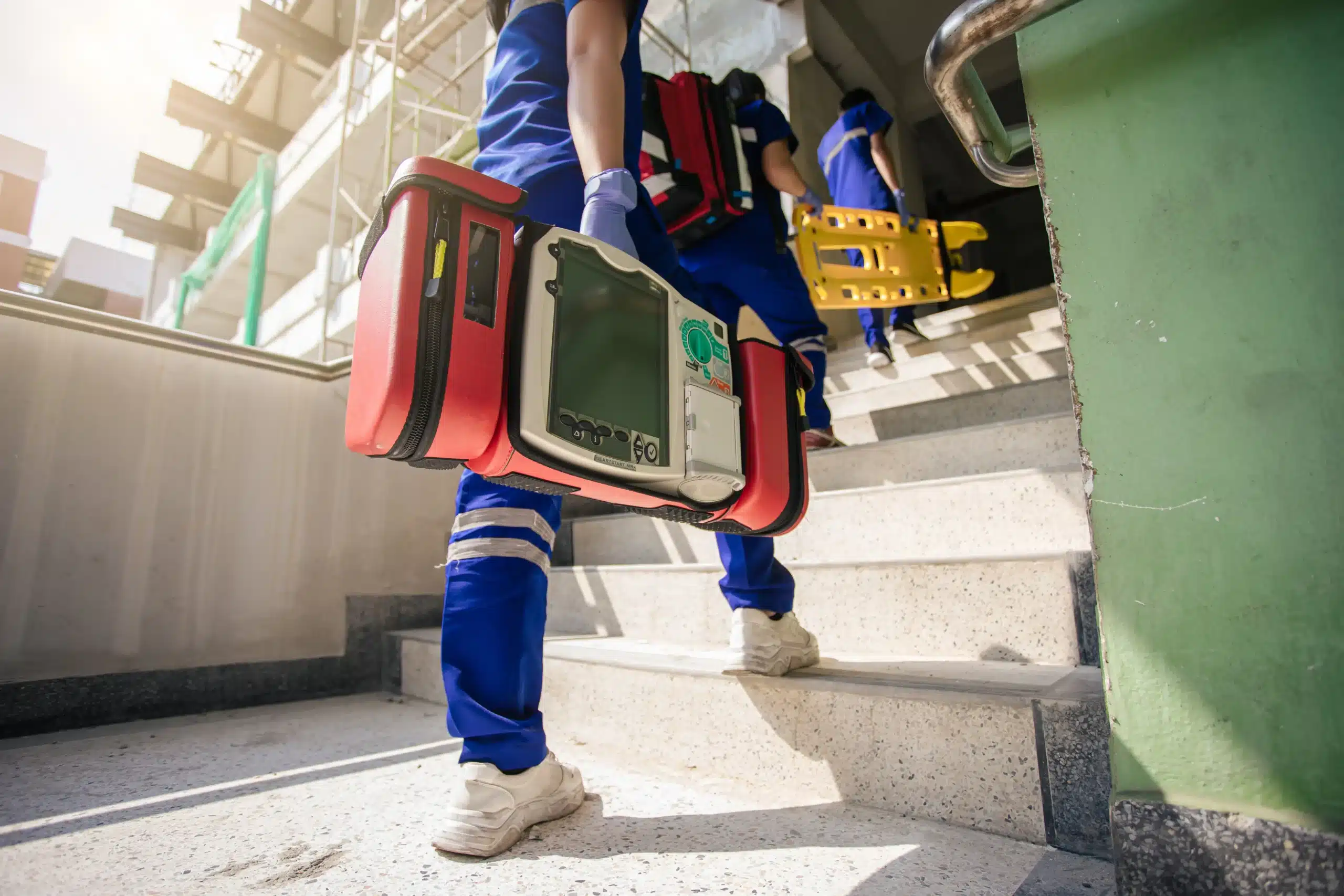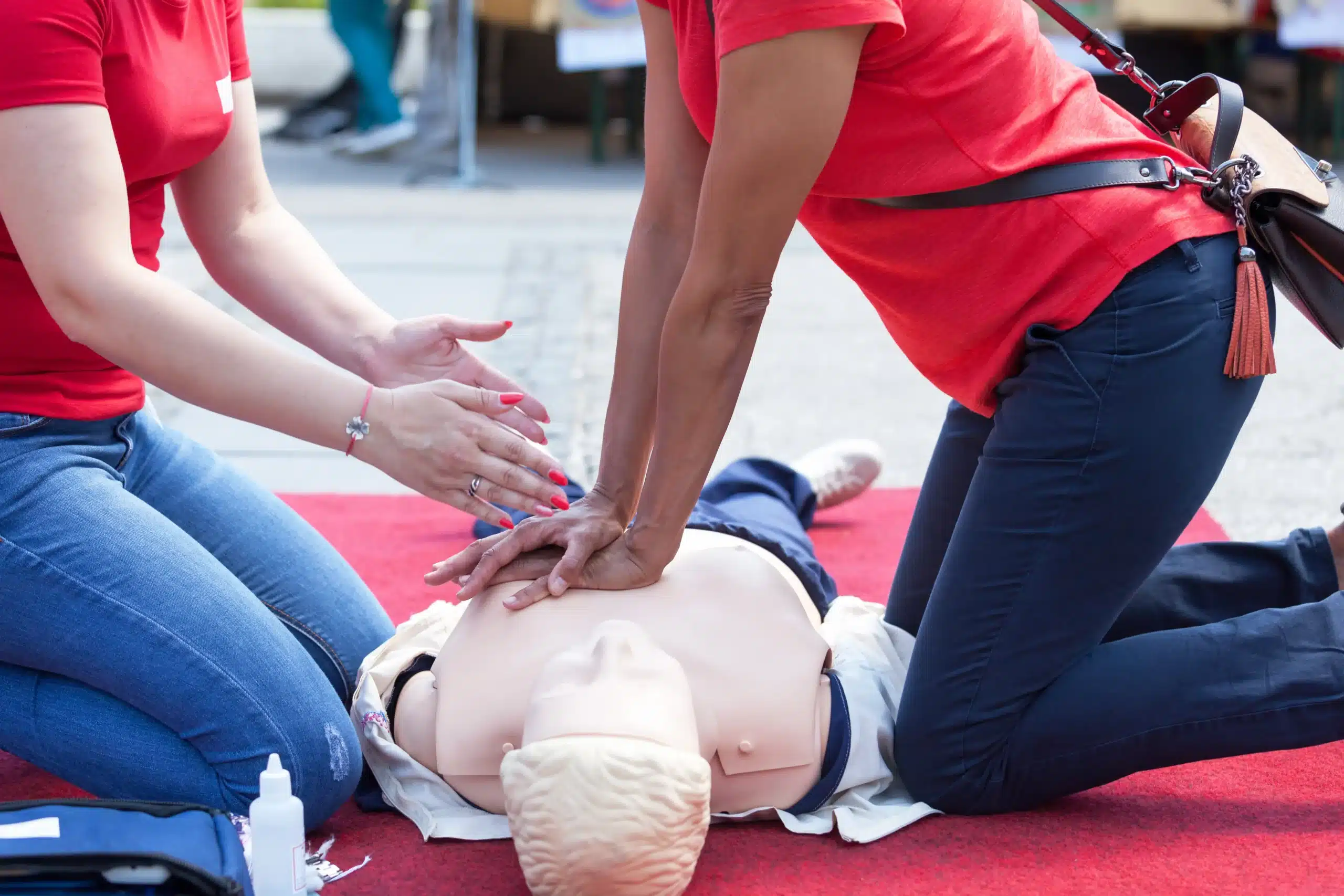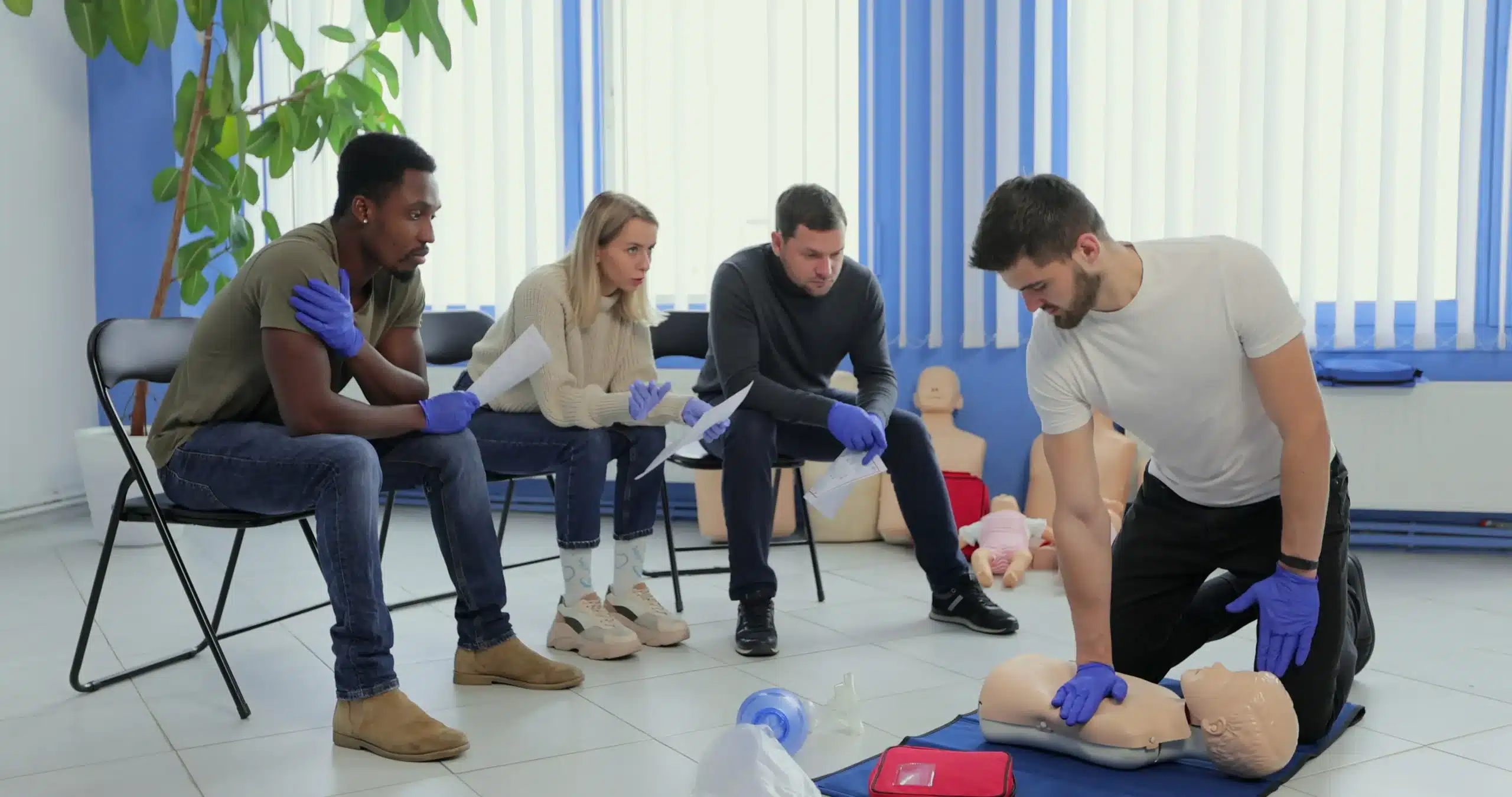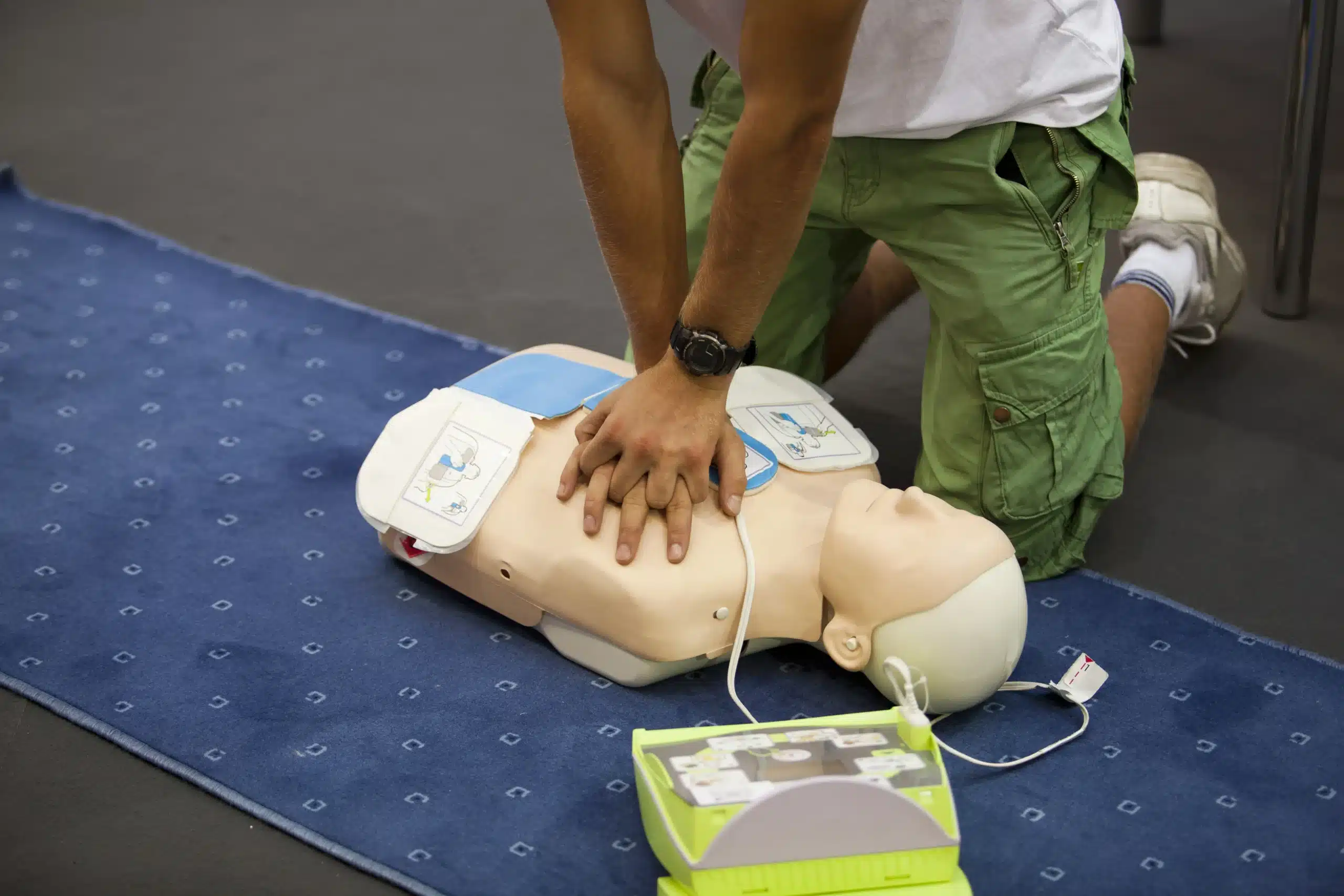Working in healthcare, you know that in times of crisis, every second counts. When a patient experiences a life-threatening cardiovascular event, having the right training can mean the difference between life and death. That’s where Advanced Cardiovascular Life Support (ACLS) comes in. This advanced training equips healthcare professionals with the skills to manage complex emergencies like cardiac arrest, stroke, and acute coronary syndromes. If you’re a healthcare provider in Benicia seeking to enhance your skills and improve patient outcomes, finding the right ACLS courses in Benicia is a crucial step. This article will guide you through understanding ACLS, finding the right training program, and the benefits it offers your career and your patients.
Key Takeaways
- ACLS certification equips healthcare providers with advanced life-saving skills: It’s a valuable asset for various medical professionals, extending beyond basic CPR to encompass a broader range of emergency interventions.
- Choosing the right ACLS course requires careful consideration: Research providers, consider their accreditation, instructor experience, and available resources to find the best fit for your learning style and schedule.
- Maintaining proficiency in ACLS involves continuous learning: Stay up-to-date with the latest guidelines and pursue continuing education opportunities to ensure you’re always prepared to deliver optimal patient care.
What is ACLS?
What is ACLS and Why is it Important?
ACLS stands for Advanced Cardiovascular Life Support. It’s a comprehensive set of protocols and algorithms designed to manage life-threatening cardiovascular emergencies. These emergencies can range from cardiac arrest and stroke to severe bradycardia (slow heart rate) and acute coronary syndromes (ACS). Having ACLS certification is essential for healthcare providers because it equips you with the knowledge and skills to handle these critical situations. It empowers you to make quick, informed decisions that can significantly improve patient outcomes. Beyond the clinical skills, holding an ACLS certification demonstrates a commitment to high-quality patient care and can enhance your professional credibility.
What Does ACLS Training Cover?
ACLS training delves into a range of essential topics, building upon the foundation of basic life support (BLS). You’ll learn how to recognize and manage respiratory and cardiac arrest, implement effective airway management techniques, and administer appropriate medications during emergencies. The course also covers understanding and interpreting electrocardiograms (ECGs). ACLS training also emphasizes the importance of effective teamwork and communication during resuscitation efforts. It’s designed for healthcare providers who either direct or participate in the resuscitation of patients, both in and out of the hospital. This includes physicians, nurses, paramedics, respiratory therapists, and other medical professionals involved in emergency care. If your workplace offers group discounts for training, it might be worth checking into.
Common ACLS Misconceptions
One common misconception is that ACLS is only for doctors. While physicians certainly benefit from ACLS training, it’s relevant to a much broader range of healthcare professionals. Nurses, paramedics, emergency medical technicians (EMTs), respiratory therapists, and anyone involved in advanced cardiac life support should pursue ACLS training. Paramedics and EMTs, for example, use their ACLS skills to initiate life-saving interventions before a patient even reaches the hospital. Another misconception is that ACLS is simply an advanced form of CPR. While CPR is a critical component of basic life support and is covered in ACLS training, ACLS goes far beyond CPR. It encompasses a wider range of interventions, including medication administration, airway management, and the use of specialized equipment. It’s a more comprehensive approach to managing complex cardiovascular emergencies. For those seeking RQI classes, understanding the distinction between basic CPR and the advanced skills taught in ACLS is crucial.
Find ACLS Courses in Benicia
If you’re a healthcare provider in Benicia, keeping your Advanced Cardiovascular Life Support (ACLS) certification current is crucial for providing top-notch patient care. Whether you’re pursuing initial certification or need to renew, you have several convenient options.
Initial Certification
ACLS certification is essential for healthcare providers. This advanced training gives you the skills to manage serious cardiovascular emergencies, ultimately improving patient outcomes. Earning your ACLS certification demonstrates your commitment to high-quality care and prepares you to handle critical situations. You can find ACLS courses in nearby Martinez, easily accessible from Benicia.
Renew Your Certification
Your ACLS certification is valid for two years. Renewing requires a shorter refresher course covering the latest American Heart Association (AHA) guidelines. Staying up-to-date on these guidelines is essential, as they’re regularly revised to reflect current scientific evidence and best practices. Check with a local provider for renewal course options.
Specialized ACLS Training
Many ACLS courses are designed for healthcare providers who lead or participate in patient resuscitation, both in and out of the hospital. While often associated with physicians and nurses, ACLS training isn’t limited to specific specialties. It’s relevant for various healthcare providers who may face cardiac emergencies. Martinez CPR Classes offers courses tailored to different healthcare professionals. They also provide specialized training like the RQI program, which focuses on high-quality CPR.
ACLS Course Costs in Benicia
Finding the right ACLS course is important, but sticking to your budget matters too. Let’s break down the typical costs associated with ACLS certification in Benicia and explore some ways to make it more affordable.
Average Costs & Payment Options
ACLS certification in Benicia typically costs between $150 and $300. This usually covers instruction, materials, and exam fees. Remember that costs can vary depending on the training provider and whether they include extras like online practice tests or study guides. Many providers offer various payment options, such as credit cards and debit cards, so inquire about what’s most convenient for you. Martinez CPR Classes is known for its competitive pricing, so check out their options.
Group Discounts & Low Price Guarantee
Training a team of healthcare professionals or a group of colleagues? Many ACLS providers in Benicia, including Martinez CPR Classes, offer discounts for group registrations. This can significantly lower the per-person cost, making group training budget-friendly. Some providers even have a low-price guarantee, ensuring you receive quality training at a competitive rate. Ask potential providers about group discounts and price guarantees to maximize your training budget.
How Long are ACLS Courses?
If you’re a healthcare provider in Benicia, getting ACLS certified is essential for your career. But how much time will you need to dedicate to training? Initial ACLS certification courses typically require 10–12 hours, including hands-on practice and testing. Renewal courses are shorter, usually around 6–8 hours.
In-Person vs. Online
The American Heart Association (AHA) offers two main ACLS training formats: blended learning and traditional classroom training. Blended learning combines online coursework with in-person skills sessions and testing. Traditional classroom learning takes place entirely in person. Both options teach the same AHA science-based skills and result in the same AHA ACLS Provider Course Completion Card. Choose the format that best fits your learning style and schedule.
Hands-On Practice
ACLS courses aren’t just about lectures and textbooks. They emphasize hands-on practice to prepare healthcare providers for real-life emergencies. These courses are designed for those who direct or participate in patient resuscitation, both in and out of the hospital. You’ll learn essential skills like administering medications, managing airways, and working effectively as part of a team.
Course Materials & Resources
Before your ACLS course, obtain the current ACLS Provider Manual and study the material. This will give you a solid foundation and help you get the most out of your training. On the day of your course, bring your manual, a notebook and pen for taking notes, comfortable clothes, and water to stay hydrated. Being prepared will help you focus on learning and mastering these life-saving skills.
Who Needs ACLS Training?
Advanced Cardiovascular Life Support (ACLS) certification is a valuable asset for healthcare professionals. It shows you can handle complex cardiovascular emergencies and deliver excellent patient care. But how do you know if it’s the right training for you? This section clarifies who benefits most from ACLS.
Eligibility
ACLS certification focuses on giving healthcare providers the skills to manage serious cardiovascular emergencies. Professionals in emergency medicine, critical care, and other high-stakes environments will find this training especially relevant. It’s designed for those regularly involved in resuscitations and advanced cardiac care. If you’re a medical student, doctor, nurse, or other healthcare worker looking to improve patient outcomes and demonstrate a commitment to excellence, ACLS training could be a great next step.
Prerequisites
While ACLS builds on basic life support knowledge, there aren’t strict prerequisites for the course. Anyone who might need to respond to a cardiac emergency can benefit, regardless of their specific role or healthcare setting. This flexibility makes ACLS applicable to a wide range of healthcare providers, from paramedics and respiratory therapists to pharmacists and physician assistants. Even if you don’t see cardiac emergencies every day, having the skills to help can be invaluable. Martinez CPR Classes offers a supportive learning environment for professionals at all levels.
Benefits for Healthcare Professionals
Beyond the core skills, ACLS training offers several career advantages. It strengthens your resume, showing your dedication to professional development and advanced life support techniques. This can make you a stronger candidate for jobs and promotions. Plus, ACLS certification often meets continuing education requirements for many healthcare licenses and certifications. By staying current with the latest guidelines and best practices, you’ll provide better patient care and contribute to a safer healthcare environment.
Top Benicia ACLS Providers
Finding the right ACLS course can feel overwhelming, so we’ve compiled a list of trusted providers in and around Benicia. Whether you’re looking for initial certification or a refresher course, these providers offer comprehensive training to equip you with the skills you need.
Martinez CPR Classes
Martinez CPR Classes offers a variety of American Heart Association (AHA) courses, including BLS, ACLS, PALS, CPR, and First Aid. They’re known for their commitment to affordability and offer discounts for group registrations, which is helpful if you’re coordinating training for a workplace or a group of friends. They also offer specialized courses like RQI. Because they offer classes daily, you’ll likely find a schedule that works for you. Check out their website for more information on their BLS, ACLS, and other courses. They also have a convenient low price guarantee and offer group discounts.
AHA Training Centers
The CPR Training Center of Concord offers AHA’s Advanced Cardiovascular Life Support courses designed for healthcare providers who direct or participate in patient resuscitation, both in and out of the hospital. They are an authorized AHA Training Center, ensuring their courses meet the highest standards.
Other Local Providers
Vallejo CPR Classes, affiliated with Safety Training Seminars, offers ACLS courses in nearby Vallejo, conveniently serving Benicia, American Canyon, and the surrounding areas. This option might be a good fit if you’re looking for training outside of Benicia proper.
Choose the Right ACLS Provider
Finding the right ACLS provider is crucial for a valuable learning experience. Here’s what to consider when making your decision:
Accreditation & Certification
First, confirm the training center’s accreditation. Ensure they offer American Heart Association (AHA) certified courses. AHA ACLS training meets the highest standards and is widely recognized. Martinez CPR Classes is a woman-owned AHA Training Center, guaranteeing you receive a valid and respected certification.
Instructor Qualifications
Look for experienced, certified instructors. Instructors should have a strong healthcare background and extensive experience teaching ACLS. Ask about their qualifications and teaching style to ensure a good fit for your learning preferences. A quality instructor can significantly impact your understanding and confidence.
Course Reviews & Testimonials
Reading reviews and testimonials from past students offers valuable insights. Check online reviews or ask the training center for testimonials. Hearing about other students’ experiences can give you a sense of the course quality, instructor effectiveness, and overall learning environment.
Tips for Choosing a Provider
Consider these additional factors when selecting an ACLS provider:
- Location and Schedule: Choose a convenient location with a schedule that works for you. Martinez CPR Classes offers courses in over 60 cities, serving Martinez, Port Chicago, and Benicia, CA.
- Class Size: Smaller classes often allow for more personalized attention and interaction with the instructor.
- Cost and Payment Options: Compare pricing and payment options from different providers. Martinez CPR Classes offers a low-price guarantee, ensuring you get the best value. Also, inquire about group discounts if applicable.
- Additional Resources: Some providers offer additional resources, such as online materials or practice exams. Ask about any supplementary materials or support they provide. For example, Martinez CPR Classes offers specialized training like RQI programs for healthcare professionals.
Prepare for Your ACLS Course
Getting ready for your ACLS course can make a big difference in how well you absorb the information and perform. This section offers helpful tips and addresses common concerns to boost your confidence.
Study Tips & Expectations
ACLS certification is a valuable asset for healthcare providers. It gives you the skills to manage serious cardiovascular emergencies, improving patient outcomes and showing your commitment to high-quality care. Before your ACLS class, review the core algorithms for BLS, cardiac arrest, bradycardia, tachycardia, and stroke. Familiarize yourself with basic pharmacology related to these conditions. You can find helpful resources and practice materials on the American Heart Association website. This preparation will create a solid base for the course material. During the course, active participation is key. Engage in discussions, ask questions, and use the hands-on practice sessions.
ACLS training isn’t limited to specific specialties or settings. It applies to a wide range of healthcare providers who may face cardiac emergencies. Whether you’re a doctor, nurse, paramedic, or respiratory therapist, the skills you gain in ACLS are essential for providing effective and timely care. All ACLS courses teach the same science-based skills and lead to the same AHA ACLS Course Completion Card.
Address Common Concerns
One common concern is how ACLS applies to different healthcare roles. Many ACLS courses are designed for providers who direct or participate in patient resuscitation, both in and out of the hospital. So, whether you’re in the emergency room, intensive care unit, or a pre-hospital setting, ACLS training is relevant. Another misconception is that ACLS is only for certain specialties. A variety of medical professionals benefit from ACLS training, including emergency room physicians, anesthesiologists, critical care nurses, and paramedics. It’s a comprehensive program designed to improve the skills of any healthcare professional who might encounter a cardiovascular emergency.
While CPR is a critical part of basic life support, ACLS expands on those skills. It covers advanced concepts like airway management, rhythm recognition, and pharmacological interventions. This advanced training builds on your CPR knowledge and gives you a broader skillset to handle complex cardiac emergencies. For more information on ACLS courses near you, check out our resources on ACLS classes in Benicia.
Maintain Your ACLS Certification
Keeping your Advanced Cardiovascular Life Support (ACLS) skills sharp is crucial for any healthcare provider. It’s not a one-and-done deal. Staying current with the latest guidelines ensures you’re prepared to handle cardiac emergencies effectively. This section covers how to renew your certification and the importance of continuing education.
Renew Your ACLS Certification
Your ACLS certification is valid for two years. When it’s time to renew, you’ll take a refresher course, which is shorter than the initial certification course. This renewal covers essential updates to the American Heart Association (AHA) guidelines, reinforcing your knowledge and skills. Keeping your certification current demonstrates your commitment to providing high-quality patient care. Check with your employer or certifying body for specific renewal requirements and deadlines. Don’t let your certification lapse—stay ahead of the curve and be ready to respond confidently in critical situations.
Continuing Education
Even after renewing your ACLS certification, ongoing learning is essential. The medical field is constantly evolving, with new research and best practices emerging regularly. Continuing education through workshops, online resources, and conferences can help you stay informed about the latest advancements in cardiac care. This ongoing learning isn’t just about maintaining your certification; it’s about providing the best possible care for your patients. Staying updated in ACLS benefits your professional development and, most importantly, your patients’ well-being, whether you’re an emergency room physician, a critical care nurse, or a paramedic. Explore resources like Master ACLS to supplement your knowledge and maintain your proficiency in advanced cardiac life support. Consider joining professional organizations that offer continuing education opportunities to connect with other healthcare providers and stay at the forefront of your field.
How ACLS Improves Patient Care
When seconds count, healthcare providers need to be prepared. ACLS certification equips medical professionals with the knowledge and skills to handle life-threatening cardiovascular emergencies, ultimately leading to better patient outcomes. Let’s explore how ACLS training elevates patient care.
Improve Emergency Response
ACLS training instills a systematic approach to patient care during emergencies. It provides evidence-based algorithms and protocols for managing cardiac arrest, stroke, and other acute cardiovascular conditions. This structured approach helps healthcare providers make quick, informed decisions under pressure, leading to faster interventions and improved patient survival rates. Having ACLS-certified professionals on staff can significantly impact a patient’s chances of recovery. Preparation and decisive action are key when every moment matters.
Enhance Teamwork & Communication
Effective teamwork and clear communication are crucial during medical emergencies. ACLS courses emphasize the importance of collaboration and communication within a healthcare team. Through simulations and practice scenarios, providers learn to work together seamlessly, assigning roles, sharing critical information, and coordinating efforts efficiently. This enhanced teamwork minimizes errors, streamlines treatment, and creates a more organized and effective response, ultimately benefiting the patient. It’s not just about individual skills; it’s about the team working as a cohesive unit to provide the best possible care.
Related Articles
- ACLS Certification in Martinez: A Comprehensive Guide
- ACLS Courses in Port Chicago: Your Complete Guide – Martinez CPR Classes
- AHA ACLS Classes in Martinez, CA – Martinez CPR Classes
Frequently Asked Questions
What exactly does ACLS cover that basic CPR doesn’t?
ACLS builds upon the foundational skills of CPR. It encompasses advanced airway management techniques, the use of electrocardiograms (ECGs) to understand heart rhythms, and the administration of medications during emergencies. It also emphasizes effective teamwork and communication during critical situations, providing a more comprehensive approach to managing complex cardiovascular emergencies.
If I’m not a doctor, do I really need ACLS certification?
While doctors certainly benefit from ACLS, it’s highly relevant for a broader range of healthcare professionals. Nurses, paramedics, EMTs, respiratory therapists, and anyone involved in advanced cardiac life support should consider pursuing ACLS training. It equips you with the skills to manage emergencies before, during, and after a patient reaches the hospital.
How much time does an ACLS course require, and what are my learning options?
Initial ACLS certification typically takes 10–12 hours, while renewal courses are shorter, around 6–8 hours. You can choose between blended learning (online coursework combined with in-person skills sessions) or traditional classroom learning. Both formats cover the same material and lead to the same AHA certification.
How much does ACLS certification cost, and are there ways to save money?
ACLS certification typically costs between $150 and $300, depending on the provider and what’s included. Look for providers offering group discounts, which can significantly reduce the cost per person. Some providers also offer a low-price guarantee. Always compare pricing and payment options before committing to a course.
What should I do to prepare for my ACLS course?
Before your course, obtain the ACLS Provider Manual and review the core algorithms for BLS, cardiac arrest, bradycardia, tachycardia, and stroke. Familiarize yourself with basic pharmacology related to these conditions. On the day of the course, bring your manual, a notebook, a pen, comfortable clothes, and water. Being prepared will help you focus on learning and mastering the material.
